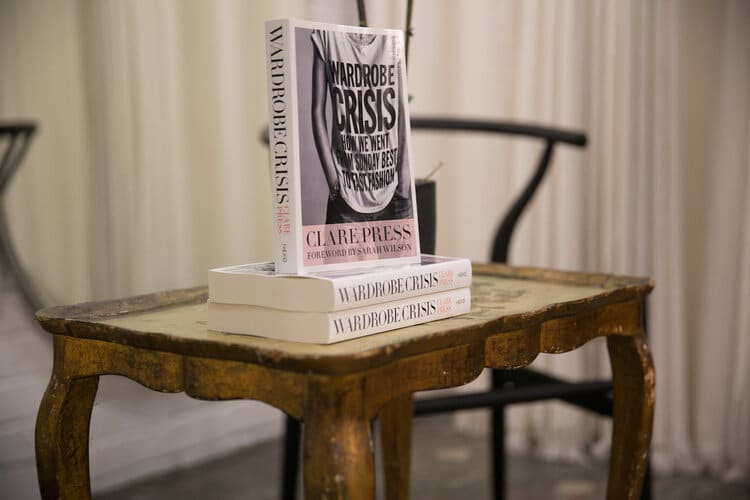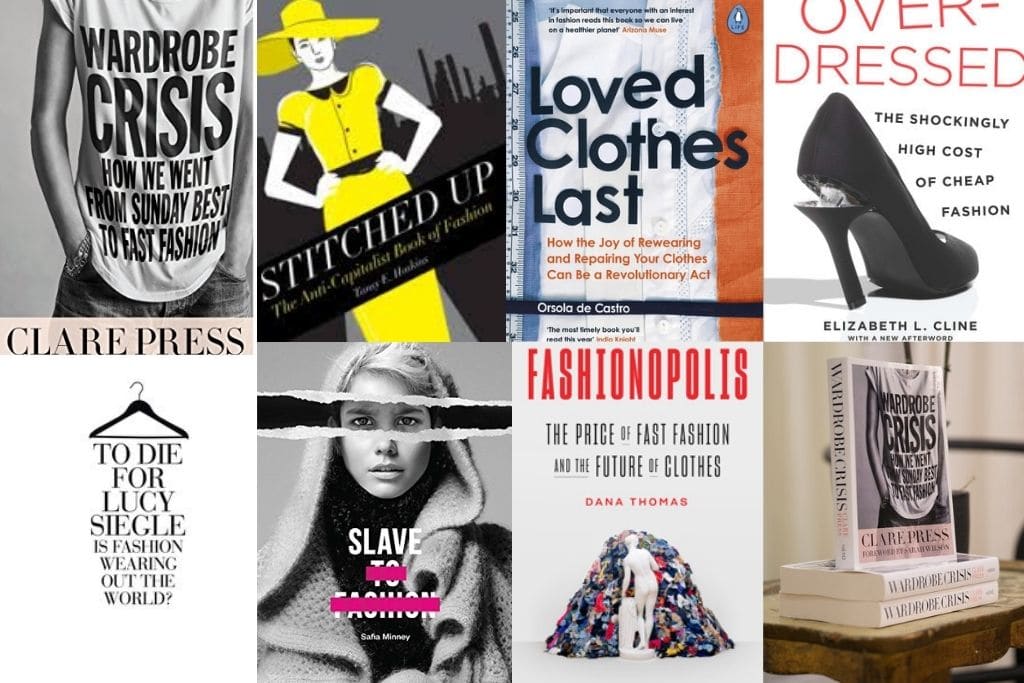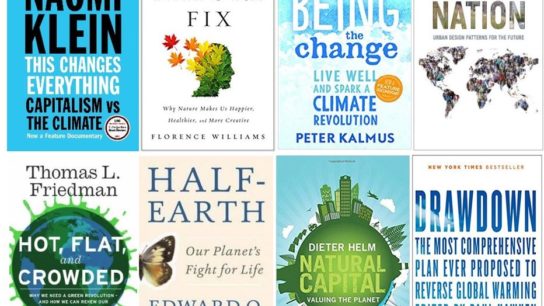Increasingly more people have been made aware of fast fashion, which refers to a large sector of the fashion industry that relies on cheap and rapid production of low quality clothing, leading to consumers discarding outfits quickly, and its detrimental impacts on the environment. Today, fast fashion is responsible for 92 million tonnes of textiles waste every year, in addition to 10% of global carbon emissions and nearly 20% of global wastewater. Fast fashion also poses significant societal issues, namely forced and child labour, in order to meet the sheer global demand for clothing at such low prices. A number of experts and advocates have brought to light the complex issues surrounding the industry, and offer solutions on how we could break up fast fashion, as well as pathways in achieving a more sustainable lifestyle. Here is Earth.Org’s selection of the best books about fast fashion.
—
Best Books About Fast Fashion
Overdressed: The Shockingly High Cost of Cheap Fashion, by Elizabeth L. Cline (2012)
Writer and journalist Elizabeth Cline was among the first US journalists to uncover the severely poor working conditions of the garment industry in Bangladesh, shortly before the Rana Plaza disaster in 2013 that claimed the lives of more than 1,130 workers. In this critically acclaimed exposé, Cline provides an enlightening overview of the impacts of fast fashion on the environment, economy and society. Unravelling the social justice, human and labour rights issues embedded within the apparel industry, the book also explores the consumer culture that has led to the current fast fashion business model. Our low cost clothing comes with a hefty price, and it’s time for a conscious fashion revolution. Cline expertly lays down the foundations of modern sustainable and ethical fashion, and how we should take up the responsibility in making fashion ethical and sustainable.
Fashionopolis, by Dana Thomas (2019)
Journalist Dana Thomas does not hold back in her criticism about today’s fast fashion industry, pointing out how the clothing industry churns out billions of garments every year,, and that environmental and labour exploitation has exponentially multiplied within the last few decades as a result of globalisation and the tech revolution. The world is in dire need of a new model, to which Thomas provides suggestions and solutions for. From innovation development such as 3D printed clothes, smart manufacturing, fabric recycling as well as lab-grown materials, to creative ideas that can help the manufacturing process reduce environmental degradation and waste, discover the individuals and designing companies that are leading the way to produce better and cleaner fashion. It is ultimately a positive and optimistic book in highlighting that we have the minds and the ability to stop fast fashion right now.
To Die For, by Lucy Siegle (2011)
Well-known for her prolific coverage on sustainable and environmental issues, British journalist Lucy Siegle dives into the devastating stories behind the clothes that we casually buy and wear in this compelling book about fast fashion. Siegle provides a comprehensive examination within the fashion industry, exploring everything from environmental degradation to exploitative and unsafe labour practices, as well asking readers to rethink the relationship between consumer practice and the global economic health. But amid all these distressing impacts and conditions, the book offers a clear and plausible vision on how to tackle cheap and bulk fashion, how individuals can be an ‘ethical fashionista’, and “how green could really be the new black”.
If you like these books about fast fashion, you might also like: 7 Fast Fashion Companies Responsible for Environmental Pollution

Wardrobe Crisis: How We Went From Sunday Best to Fast Fashion, by Clare Press (2016)
Utilising her insider status, fashion journalist Clare Press takes readers behind the scenes and examines the entire fashion ecosystem, starting from sweatshops to the display windows of big fashion labels. Follow as the author guides readers through important turning points in the history of the garment industry, including the rise and fall of department stores, the disappearance of local shoe and dressmakers, and how major fashion houses like Ralph Lauren, Calvin Klein and Zara became the fast fashion juggernaut they are today. Both witty and persuasive, Press makes a strong case to completely rethink our shopping habits while peppering in numerous important facts and statistics.
Stitched Up, by Tansy Hoskins (2014)
What set Stitched Up apart from many books about fast fashion is its illustration from an economic perspective. Hoskins delves into the concepts of capitalism and Marxism in relation to the fashion industry, whilst exposing the “vampiric” relationship between worker exploitation, the environment and our bodies. Putting forward questions such as whether fashion is inherently racist, can green fashion be a functional alternative, and whether we should disprove the concept of fashion itself, this book is a critical exploration of the distorting priorities of capitalism and the impacts the two-billion-dollar fashion industry has on society and the planet. It’s no surprise that Hoskins’ work has been recognised as one of the best books on fast fashion, including actress Emma Watson, who selected the book as part of her ‘Ultimate Book List.’
Slave to Fashion, by Safia Minney, (2017)
Safia Minney is no stranger to problematic issues in fashion, who has previously published works on slow fashion on top of her role as the CEO of the Fair Trade and sustainable fashion label, People Tree. As the title suggests, Slave to Fashion tackles modern-day slavery and child labour within the global fashion, garment and footwear industry, whom are forced to produce clothing that most of the Western world dons. The book features a collection of interviews and micro-documentaries with the men, women and children involved across the supply chains, with sections dedicated to the Modern Slavery Act 2015, which require all British businesses to report they are taking the steps to ensure that slavery and human trafficking are not present in their supply chains or their own business, and guides to company best practices and activism.
Loved Clothes Last, by Orsola de Castro (2021)
Better known as the co-founder and global creative director of Fashion Revolution, Orsola de Castro has made it her mission to educate people into loving their clothes longer and buying outfits that last. The book acts almost like a self-help book on practical ways to mend, re-wear and breathe new life into your wardrobe to achieve a more sustainable lifestyle. Readers will be encouraged to examine and evaluate their shopping habits, and be guided on how to shop more consciously while reducing the carbon footprint. You might find yourself picking up sewing and crocheting in the process as well as other surprising practices, which not only has a positive environmental impact, but can be personally enriching too.
You might also like: 5 Great Climate Change Fiction Novels


















